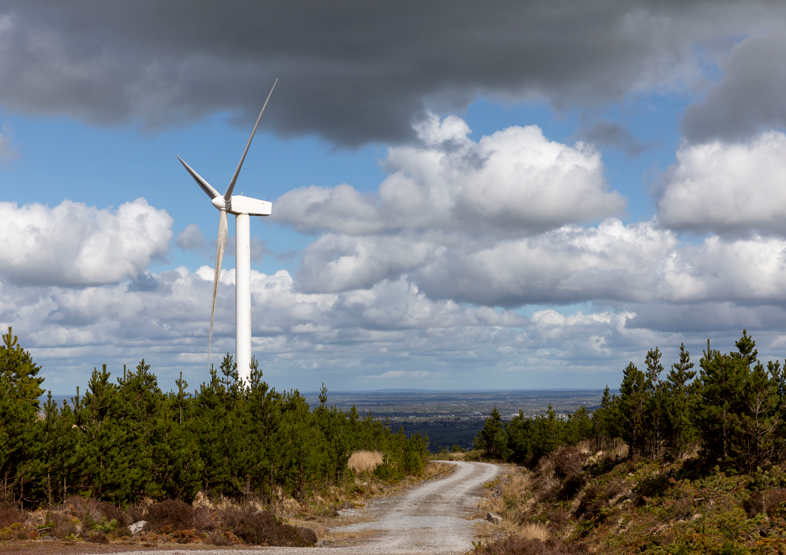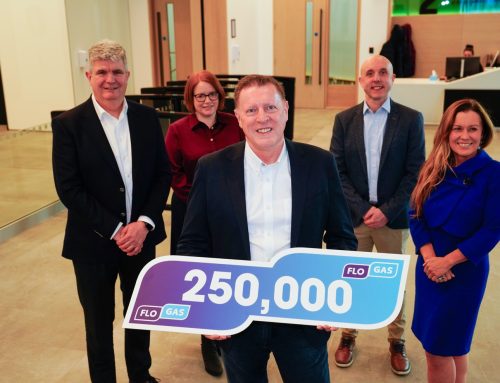The Impact of Energy Prices on PPA prices in Ireland
As Senior Manager at Flogas Enterprise, I have been at the forefront of facilitating renewable energy adoption through Power Purchase Agreements (PPAs) across the island of Ireland. It has been a fascinating journey, particularly over the last couple of years as businesses like yours have been grappling with unprecedented energy price volatility.
The good news is there’s light at the end of the tunnel. We are finally seeing some stability in wholesale energy prices. But the million-dollar question remains: will this translate into lower prices for PPAs? Let us delve into this crucial question and explore what it means for your business.
Sunshine After the Storm? Deciphering the Energy Price Drop
Before we get ahead of ourselves, it is crucial to understand the context of the energy price crisis. A confluence of global events, including the conflict in Ukraine and the lingering effects of the pandemic, created a perfect storm of high demand and supply chain disruptions. This, naturally, sent energy prices soaring.
However, we are now witnessing a welcome easing of these pressures. European gas storage facilities are at healthy levels, and there has been a significant surge in renewable energy capacity, particularly in solar and wind. This increased supply, coupled with a milder winter and concerted efforts to reduce energy consumption, has contributed to the stabilisation of prices.
PPAs Demystified: A Quick Refresher
At Flogas Enterprise, we have seen firsthand the transformative power of PPAs. For those unfamiliar, a PPA is a long-term contract where your business agrees to purchase power at a fixed price from a renewable energy generator, such as a wind farm or solar park. This arrangement provides much-needed price stability and helps you lock in lower electricity rates, effectively shielding your business from the volatility of the wholesale market.
PPAs have witnessed a surge in popularity across ROI and NI as businesses actively seek ways to manage their energy costs and reduce their carbon footprint. But with the recent price fluctuations, the question arises: are they still a sound investment?
Understanding the Two Flavors of PPAs: Operational and Additional
When considering a PPA, it’s important to understand the two main types: operational and additional.
Operational PPAs are agreements with existing, post-subsidy wind farms. These PPAs offer businesses a direct contractual link to a specific renewable asset, providing energy price hedges, Guarantees of Origin (GOs), and contract terms up to five years. They offer a streamlined contracting process with certainty on dates and prices reflective of (but discounted to) the wholesale energy market.
Additional PPAs are agreements with yet-to-be-constructed, greenfield renewable assets, like new wind or solar farms. These PPAs focus on “additionality,” bringing new renewable power to the grid and supporting decarbonization efforts. They involve longer contract terms (10+ years), fixed PPA prices, and require businesses to be creditworthy to secure project financing for the developer.
The key differentiator between these two types of PPAs is additionality, and the risks and benefits arising as a result (and how these risks and benefits are negotiated and allocated).
What Has All This Got to Do with Falling Energy Prices?
The key takeaway here is that the price basis for Operational PPAs is directly related to the energy market, while the price basis for Additional PPAs is the cost of developing the renewable facility.
This means:
- Operational PPA prices will fluctuate with wholesale energy market prices.
- Additional PPA prices are not influenced by short-term energy market fluctuations.
- Prevailing wholesale energy prices are not the cost-basis for new build PPAs and therefore have no impact on the PPA price of a new build renewable asset.
This is a critical distinction for businesses considering PPAs. While lower or more stable energy prices might seem like an opportune time to secure a lower PPA price, this is only sometimes the case.
The Million-Dollar Question: Will Falling Prices Affect My Additional PPA?
This is where things get interesting. While lower or more stable wholesale energy prices are undoubtedly a positive sign and influence operational PPA pricing, their impact on additional PPA prices is a bit more nuanced.
Here is why:
- Additional PPAs are long-term commitments: Unlike fluctuating wholesale prices, additional PPAs offer price stability over an extended period, typically 10-15 years. This means that while wholesale prices might be lower now, they could easily rise again in the future. An additional PPA acts as a safeguard, protecting you from those potential future price hikes.
- Developers take a long-term view: When developers set additional PPA prices, they factor in long-term OPEX costs projections. They need to ensure the project remains financially viable over the entire contract duration.
- Other factors come into play: additional PPA prices are also influenced by factors like project development costs, financing rates, and government policies.
To PPA or Not to PPA? Making the Right Call for Your Business
So, what does this mean for you? Should you hold off on signing a PPA, hoping for even lower prices in the future?
Frankly, there is no one-size-fits-all answer. While wholesale prices might continue to fall in the short term, there is no guarantee they will stay low. Here is my advice:
- Assess your risk tolerance: If you are comfortable with price volatility and willing to bet on further price drops, you might consider waiting. However, remember that only operational PPA prices will move with the market.
- Additional PPA prices of new build assets move in line with development costs: Development costs are affected by macro non-wholesale energy factors such as inflation, cost of capital and more.
- Focus on your long-term strategy: If price stability and reducing your carbon footprint are top priorities, a PPA still offers significant benefits, even with the current market fluctuations.
- Shop around and negotiate: Do not be afraid to compare offers from different wind farms and solar parks and negotiate the terms of the contract.
- PPAs can be complex: speak with industry experts to navigate the market and understand the risks.
if you would like to know more about a PPA for your business, please get in touch at PPA@flogas.ie.







